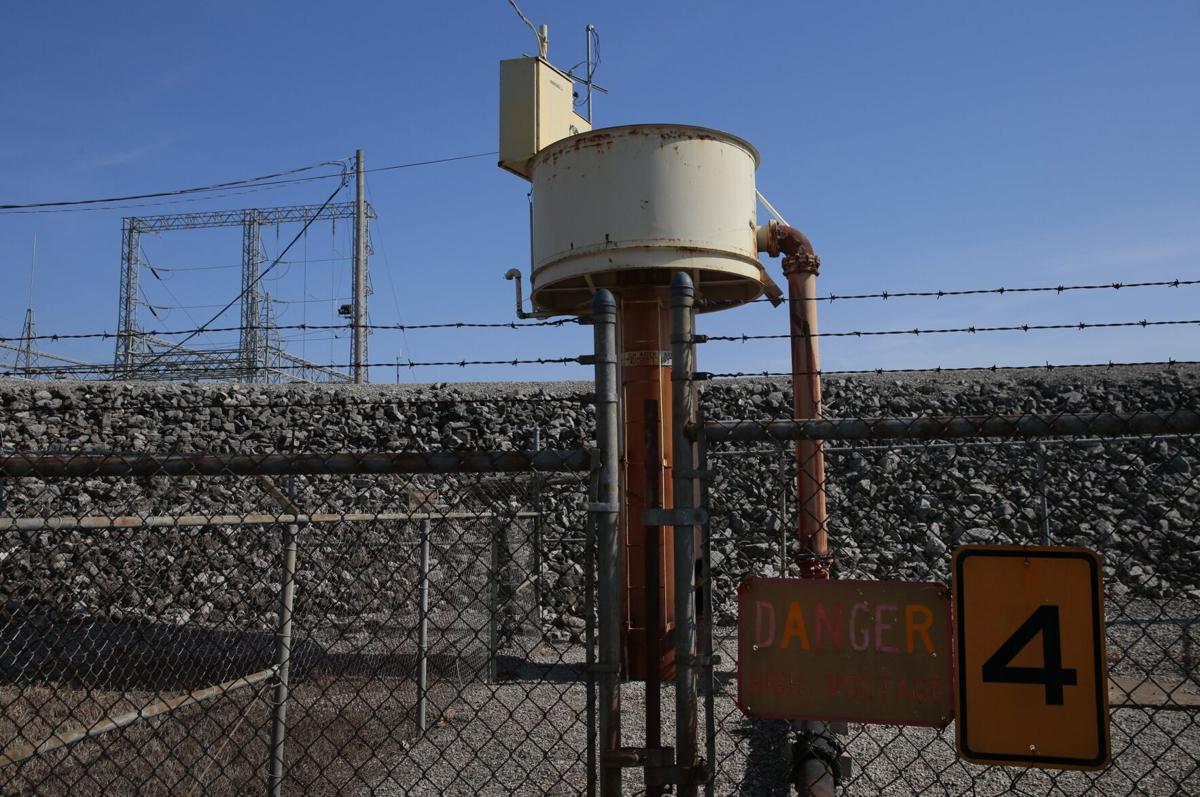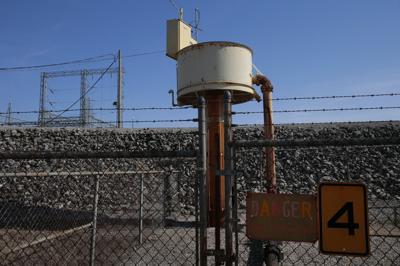ST. CHARLES — For the second time in two months, a company is seeking a hazardous materials permit to operate a warehouse in St. Charles’ protected wellhead district, the source of drinking water for much of the city.
Global medical logistics company Life Couriers is seeking a special permit that would allow it to store and distribute potent medications used to treat prostate cancer and leukemia from a 19,000-square-foot warehouse in the 3800 block of Fountain Lakes Parkway East along Highway 370 on the city’s northside.
Last month, developer CRG Cumulus asked the city zoning commission to store up to 1 million gallons of diesel fuel at a proposed 440-acre data center near Huster Road and Harry S Truman Boulevard, an industrial part of the city.
People are also reading…
Water contamination has long been a concern in St. Charles, where area electric utility Ameren has worked for years to follow directives from the federal Environmental Protection Agency to clean up the contamination caused by cleaning solvents used years ago at a nearby substation. The city has sued Ameren over the contamination. That case is ongoing.
At Monday’s zoning commission meeting, residents urged the commission to reject Life Couriers’ request. Residents said while they support cancer patients receiving treatment, the company should not be allowed to operate a warehouse in the protected wellhead district because of continuing environmental concerns.
St. Charles Mayor Dan Borgmeyer tried to quash those concerns during the meeting, describing residents’ concerns regarding pollution as “hysteria.”
“Just because it is hazardous materials doesn’t mean it is in the wellhead destroying anything,” he said.
But residents like Fred Semke were unswayed.
“There’s no way you can ever say that you’re not going to have an incident,” Semke said to Life Courier’s CFO, Tyler Lawson, who was at the meeting. “It is bound to happen.”
“I am sure Ameren never planned to pollute our water,” he said.
Lawson told the zoning commission that the company abides by strict regulations from federal and state governments.
“We’re not a pharmaceutical manufacturer,” he said. “I don’t represent anyone doing that. I represent a group of drivers who participate in what we call final-mile logistics, which is essentially the last point of bringing lifesaving medication from where it was made into somebody’s arm to save their life.”
The medications, Lawson said, will be delivered to the facility in secure packaging approved by the federal Department of Transportation. The packaging is not opened and the medication is not repackaged on site.
“We’re talking about milliliters of an already formulated and finalized drug inside of a self-contained package with secondary containment packaging,” Lawson said. He said no raw materials would be stored at the facility.
He said the company, which was previously known as Associated Couriers, has been around for 50 years. It is relocating its warehouse to St. Charles from Hazelwood because it is a more centralized location for its drivers.
Life Couriers’ regional headquarters, also in Hazelwood, is relocating to Fenton, too, according to St. Charles documents.
The company specializes in the transport of drugs, radioactive material, stem cells, gene therapies, lab specimens, clinical trials, organ transplant, and medical devices, according to a brochure published on the company’s website.
Lawson, who declined interview requests, did not address whether the company would also be storing these items at the warehouse. St. Charles staff told the Post-Dispatch that Monday’s planning and zoning commission was specifically related to the cancer medications and not the other materials that the company may transport or store at the facility.
It is also unclear, city staff said, to which local hospitals, clinics, treatment facilities, or pharmacies these medications would be sent.
According to city documents, large box trucks would make between five to six deliveries per week to the warehouse. A team of 10 delivery drivers would then distribute the medications using cargo vans. The delivery drivers would make about 50 deliveries per week.
Lawson said that no materials would be stored in the warehouse overnight.
Debate on Monday lasted about 30 minutes, but the zoning commission unanimously recommended the St. Charles City Council approve the hazardous materials permit, with conditions.
The conditions include the company submitting an emergency response plan that is reviewed by the city’s environmental consultant and city staff annually. The company — which is self-insured — must also carry insurance or be willing to pay the city an undisclosed and predetermined amount of money to the city to “pay for the cost of cleanup incurred as the result of inadvertent discharge.”
The city is also proposing a requirement that all “pharmaceuticals handled at this facility arrive and depart in sealed, Department of Transportation-compliant containers that are not opened or repackaged on-site.”
The CRG Cumulus request is pending before the council, which delayed a public hearing on the proposal earlier this month to allow the developer to host a public forum to address residents’ concerns.
That meeting is set for 5 p.m. Thursday at the Foundry Art Centre, 520 North Main Center in St. Charles.















